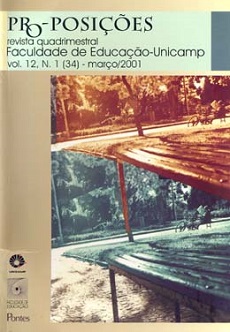Resumo
Os avanços na ciência biomédica têm importantes implicações para a tomada de decisão em políticas públicas e para o ensino nas escolas. O discurso reducionista predominante impede o entendimento das questões éticas que surgem a partir desse tópico complexo. A pesquisa que foi feita sobre os desafios pedagógicos, com os quais os professores de ciências e de humanidades se deparam ao lidar com as questões éticas em ciência, pode ajudar a estabelecer o que deve ser investigado para a avaliação de critérios efetivos de ensino de temas controversos em ciência.
Abstract:
Advances in biomedical science have important implications for public policy decision-making and teaching in schools. Understanding the ethical issues arising from this complex topic is impeded by the predominant reductionist discourse. Research that has been done into the pedagogical challenges facing science teachers and humanities teachers in addressing ethical issuesin science, can help to generate the appropriate research questions to evaluate effective criteria in teaching controversial issues in science.
Descriptors: Science. Ethics. Reductionism. Teaching. Subject areas
Referências
Asch, A. e Geller, G. (1996). 'Feminism, bioethics and genetics'. In: W olf, S. (Org.) Feminism and bioethics:bryondreproduction,Nova Y ork: Oxford U niversity Press.
Claxton, G. (1997). Science of the Times: A 2020vision of education. In: Levinson, R. e Thomas, J. (orgs.), ScienceTodqy: ProblemorCrisis?London, pp. 71-86.
DfEE/ QCA (1999). 5cience:The National Curriculumfor England. London: HMSO / QCA.
Donnelly, ]. (1999). Interpreting differences: the educational aims of teachers of science and history, and their implications.J CurriculumStudies, vo131, nO 1, pp.17-41.
Fax Keller, E. (1995). Rcfininglife:metaphorsoj twentiethcenturybiologylibrary.The Wellek Library lectures, New York: Columbia University Press.
Hubbard, R. (1995). Genes as Causes. In: Shiva, V. e Moser, L (orgs.) Biopolitics,London Atlantic Highlands, N.J. : Zed Books Penang, Malaysia: Third W orld Network.
Jenkins, E. (1999). School science, citizenship and the public understanding of science.
In: Int.J Sci.Ed., vai 21 (7), pp. 703-10.
Joss, S. e Durant, J. (orgs.) (1995). Public Participation in science:the role oj consensusconferences in Europe, London.
Midgley, M. (1992). Scienceassalvation:a modern myth and its meaning.London: Routledge.
Millar, R. e Osborne, J. (orgs.)(1998). Bryond 2000: Scienceeducationfor thefuture. King's CollegeLondon, School of Education.
Miringoff, M -L. (1991). The socialcostsoj geneticwelfare,Brunswick NJ: Rutgers U niversity Press.
Popper K. (1972). C01!fecturesand Rcfutations,Routledge and Kegan Paul: London and Henley.
Rase, S. (1997). Lifelines:biologydreedom, determinism,London: Allen Lane.
Wallis, G. (1999). Thegeneticbasisojhumandisease,London: The Biochemical Society.
A Proposições utiliza a licença do Creative Commons (CC), preservando assim, a integridade dos artigos em ambiente de acesso aberto.

